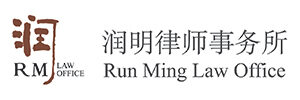On 19 January, the China Internet Network Information Centre issued its 27th Statistical Report on Internet Development in China. The report shows that the number of online buyers in the PRC is increasing at an annual rate of 48.6%, and that users of online payments and online banking are increasing at an annual rate of 45.8% and 48.2% respectively. This far outstrips the growth in other types of online activity.
While e-commerce offers flexibility and convenience, the infringement of trademark rights in the course of e-commerce transactions is also growing alarmingly. What are the legal obligations of online trading providers, and what recourse do trademark rights holders have?
Duty of care

Partner
Run Ming Law Office
Online trademark infringement is merely the extension of traditional trademark infringement to the online world. In terms of the law, there is no distinction between the two. Article 52 of the PRC Trademark Law, article 50 of the Trademark Law Implementing Regulations and article 1 of the Supreme People’s Court Several Issues Concerning the Application of the Law to the Trial of Civil Dispute Cases Involving Trademarks Interpretations apply as usual online.
Although internet service providers (ISPs) do not themselves manufacture or sell counterfeit goods, as the providers of a sales platform they have a certain duty of care and bear a degree of legal liability. However, determining the extent of that duty of care and whether it has been breached can be difficult. The Administration of the Online Trading of Merchandise and Relevant Service Acts Interim Measures, which came into effect on 1 July 2010, do not address this specifically.
In judicial practice, the requirements of PRC courts in respect of the duty of care of ISPs are extremely low, making it difficult for a trademark rights holder to pursue an ISP for failure to perform its obligation of prior examination and duty of care.
- First, an ISP is obliged to insert provisions on the protection of intellectual property in the contracts it executes with online sellers. Almost all ISPs have satisfied this requirement.
- Second, ISPs do not have an obligation to examine the qualifications of online sellers, nor are they able to do this. For example, with respect to an individual seller, an ISP is only required to check his or her name and ID card number.
- Lastly, an ISP is not obliged to verify the information that an online seller posts about goods online, nor to check the lawfulness of the trademark on the goods sold.
Examination after the fact
Can a trademark rights holder pursue an ISP after an infringement has occurred? An ISP has an obligation to examine an alleged infringement after the fact.

Partner
Run Ming Law Office
The legal basis for this is the second paragraph of article 36 of the PRC Tort Law, which provides that “if an internet subscriber uses internet services to commit a tortious act, the injured party shall have the right to notify the ISP to take such necessary measures as deleting, blocking and delinking. If the ISP fails promptly to take the necessary measures after receipt of the notice, it shall be jointly and severally liable with the subscriber for the additional damage.”
Under article 24 of the Administration of the Online Trading of Merchandise and Relevant Service Acts Interim Measures, “a business operator that provides an online trading platform shall take the necessary measures to protect such rights as the exclusive right to use a registered trademark and the right to an enterprise name. If a rights holder has evidence showing that a business operator using the online trading platform has infringed its exclusive right to use its registered trademark … the business operator providing the online trading platform shall take the necessary measures in accordance with the PRC Tort Law.”
We believe that the “notice” given by a trademark rights holder pursuant to the above provisions cannot just be a simple description. Considering article 14 of the Protection of the Right of Dissemination Via Information Networks Regulations, a rights holder is required, in the notice, to show:
- that the relevant seller’s trademark infringement is well established; and
- whether there is sufficient evidence to persuade the ISP that if it does not immediately effect delinking, it will be held by a court to have committed trademark infringement jointly with the infringer because it refused to perform its obligation of examination after the fact.
Practical action
Generally, a trademark rights holder does not merely wish to hit at a particular infringing seller. It would prefer to establish an effective long-term mechanism with ISPs to put a stop to infringement. With a view to doing this and securing an advantageous position in potential lawsuits, we recommend that rights holders:
- focus on tracking a few infringing sellers that have a relatively large sales volume and are relatively long established, and obtain plentiful evidence. Then, in respect of these sellers, put heavy and frequent pressure on ISPs;
- decide on reasonable claims, avoid expanding the targets of deleting, blocking and delinking, reduce the claims to the minimum and ensure that action is feasible. This will increase the chances of stopping infringement, and increase the likelihood of acceptance by ISPs or the courts;
- notarize evidence and have it preserved as soon as possible, paying attention to retaining complete transaction evidence and obtain data on the real names of the businesses.
Cases in which PRC courts have rendered judgments determining that an ISP bears joint and several liability are rare. However, with respect to the current flood of counterfeit goods in online trading, the authorities cannot sit by and allow it to go on unchecked. We await an indication of the future direction of judicial practice in this respect.
Li Min and Gao Song are partners at Run Ming Law Office
Suite 1806, NCI Tower
12A Jianguomenwai Avenue
Chaoyang District, Beijing 100022, China
Tel: +8610 65693511
Fax: +8610 65693512/13
E-mail:
limin@runminglaw.com
gaos@runminglaw.com
www.runminglaw.com






















